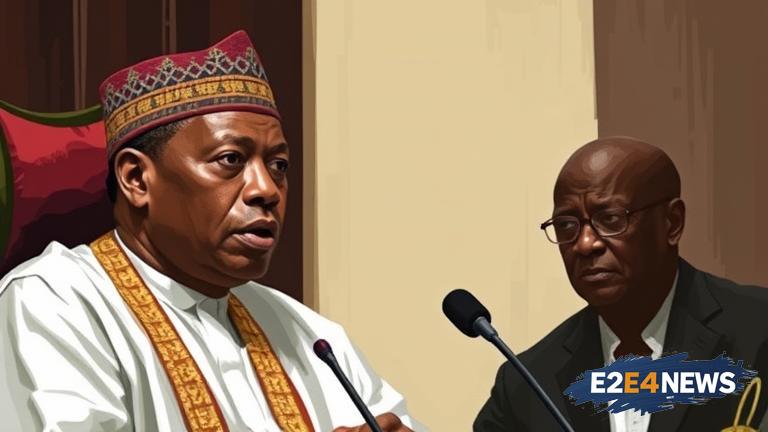The Nigerian justice system has come under scrutiny following comments from a former Chief Justice, who expressed concerns over the refusal of state governors to sign death warrants. According to the ex-CJ, this trend is emboldening criminals and undermining the rule of law. The issue has sparked a heated debate, with many arguing that the death penalty is a necessary deterrent in a country plagued by rising crime rates. Others, however, contend that the penalty is inhumane and ineffective in reducing crime. The ex-CJ’s comments come amidst a backdrop of increasing violence and insecurity in Nigeria, with many citizens calling for tougher measures to be taken against perpetrators. The Nigerian government has faced criticism for its handling of the situation, with some accusing it of being soft on crime. The refusal of governors to sign death warrants has been cited as a major contributing factor to the perceived leniency. The ex-CJ argued that the failure to carry out executions is sending the wrong message to would-be criminals, who may feel that they can act with impunity. This, in turn, is eroding trust in the justice system and creating an environment in which crime can thrive. The comments have sparked a wider discussion about the role of the death penalty in Nigeria, with some arguing that it is a necessary tool in the fight against crime. Others, however, point to the risk of wrongful convictions and the need for more effective and humane alternatives. The Nigerian government has faced pressure to reform its justice system, with many calling for a more efficient and effective approach to tackling crime. The use of the death penalty is just one aspect of a broader debate about how to address the root causes of crime and ensure that justice is served. The ex-CJ’s comments have highlighted the need for a more nuanced approach, one that takes into account the complexities of the issue and the need for a multifaceted solution. As the debate continues, it is clear that the Nigerian justice system is at a crossroads, with the need for reform and modernization becoming increasingly pressing. The government must balance the need to protect its citizens with the need to uphold human rights and ensure that justice is served. The use of the death penalty is a highly contentious issue, with many arguing that it is a violation of human rights. The Nigerian government must consider these concerns as it navigates the complex issue of how to tackle rising crime rates. Ultimately, the solution will require a comprehensive approach, one that addresses the root causes of crime and ensures that justice is served in a fair and humane manner. The ex-CJ’s comments have added fuel to the fire, highlighting the need for urgent action to be taken. As the situation continues to unfold, it is clear that the Nigerian justice system will be under intense scrutiny. The government must be prepared to take bold action to address the concerns of its citizens and ensure that justice is served. The debate over the death penalty is just one aspect of a broader discussion about the future of the Nigerian justice system. As the country moves forward, it is clear that reform and modernization will be essential in ensuring that justice is served and that the rights of all citizens are protected.
